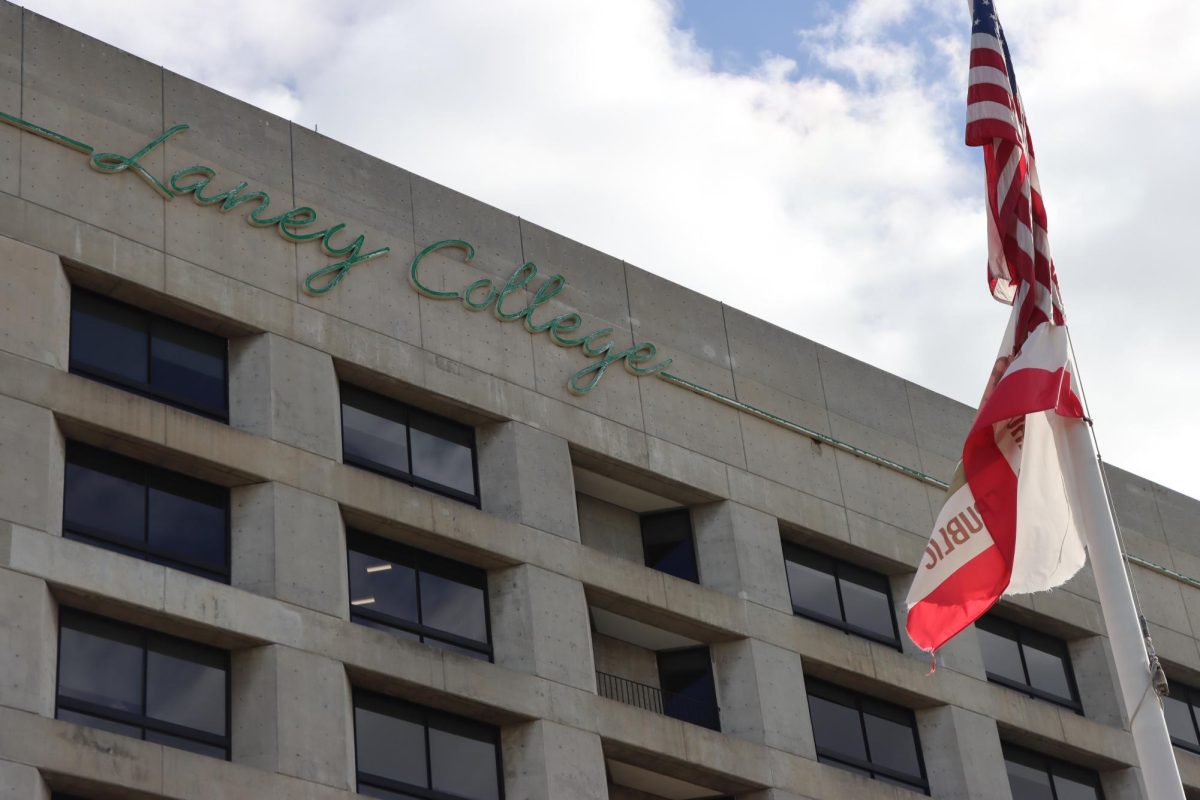Last year, The Citizen filed a lawsuit against the Peralta Community College District (PCCD) over six outstanding public records requests. The suit caught the attention of The San Francisco Chronicle, Inside Higher Ed, and EdSource, and was a factor in the Student Press Law Center’s decision to honor The Citizen with the inaugural Student Freedom of Information Award.
On Oct. 6, The Citizen signed a settlement agreement with PCCD, after receiving several records that were at the heart of our public records dispute. In honor of the sixth annual Student Press Freedom Day, we’re here to look back on our three-year-long pursuit of public records and share what we learned.
Our investigation into the records we received is still ongoing. We’ll shine a light on the new findings during Sunshine Week, a national celebration of the public’s right to information that’s held every year in March.
What is a public record and why does it matter?
By law, any documents related to a public institution in California must be accessible to the public, unless specifically exempted by the law. Public records law varies by state. A public institution can be a state or local government agency, as well as publicly funded institutions, such as public colleges and universities. A California Public Records Act request may also be referred to as a PRA, CPRA, or Freedom of Information Act (FOIA) request. By law, institutions must respond to the request within ten days.
Public access to government documents is key to transparency in governance. It’s important, for example, to know who is contributing to city official campaigns, whether a business you want to patron has a proper license, or how public funds are being spent.
Why we filed suit
In the wake of the 2020 murder of George Floyd, and the national conversations about police brutality and criminal justice reform that followed, PCCD made a historic decision not to renew its contract with the Alameda County Sheriff’s Office and begin its transition to a community-based safety model.
The transition is still ongoing. PCCD’s current Chancellor Tammeil Gilkerson stated at a meeting of the Board of Trustees on Feb. 14 of this year that the district is continuing to work on developing its safety and wellness program.
The Citizen has covered this transition extensively. We dove deeply into the three firms the district originally selected to provide community-based security services. In December 2020, Citizen reporters David Rowe and Pamela Rudd discovered that two vendors, who were set to receive a total of $6.2 million in public funds, did not hold the necessary licenses provide security services in California.
That raised an important question to us: how and why were these security vendors selected? We asked this question in the form of multiple Public Records Act requests (PRAs), but got incomplete answers.
After years of frustration, multiple follow-ups, and two final notices, The Citizen filed a lawsuit to enforce the complete production of six outstanding public records requests. These included PRAs submitted by other staff members.
After filing the lawsuit, The Citizen finally received copies of many public records, including:
- The names of three other vendors who applied to provide community-based security services to PCCD, that we were not aware of before
- Applications and proposals from those three other vendors
- The makeup of the committee which evaluated the proposals
- The results of at least two rounds of evaluations for community-based security vendors
- The scoring criteria for the final round of committee evaluations
- Copies of conflict of interest affidavits signed by committee members
- Unredacted copies of proposals submitted by Community Ready Corps, revealing the names of individuals who filled out the paperwork
- An unredacted copy of a proposal submitted by Zulu Community Protection
- Missing district credit card statements from 2017
- Incoming emails to PCCD Public Safety Director Tim Thomas’ emails between Sep. 26, 2022 and Oct. 24, 2022.
- Information about payments to outside speakers, which we reported on last June
The Citizen’s review of the public records received through the lawsuit is still ongoing. We’ll shine a light on new findings uncovered by the records in March, to honor this year’s Sunshine Week.
Advice for public record success
The pursuit of public records can be a long and bumpy road. After years of championing the role of public records in accountability journalism, we’ve learned a few tricks of the trade that can help requesters find what they’re looking for.
Be as clear and specific as possible about your request. “Any documents related to X” won’t get you very far. Your public records custodian will thank you if you know the name or form you're looking for, the specific date the it was signed, or specific keywords or information contained in the document you're looking for.
Make your PRA letter easier to read by separating the items into a numbered list, with items on separate lines. I also use bold font for the meat of my request so it stands out from the boilerplate legalese.
Having an anonymous leak portal on your website can help lead you to the right information. You can’t trust documents submitted anonymously – they could be fabricated – but you can turn around and ask your institution to provide you with a copy of the same document.
Keep track of your outstanding public records requests. I’ve started asking all my staff members to copy The Citizen’s official Editor in Chief email address on all their PRAs, so that all our requests can be found in a centralized place.
And lastly, be persistent. Follow up constantly. Border on annoying. Know that you have a right to public information.
Continued frustrations as requests slip through the cracks
Getting some of this public information took nearly three years – longer than it takes to receive an Associate’s Degree at PCCD, and much longer than the legally required ten days. By the time we signed a settlement agreement, all four of the student journalists named as plaintiffs in the lawsuit had moved on from The Citizen.

It’s ultimately frustrating that it took legal action to produce some of this information, and that we still have to jump over hurdles to receive public records in a timely manner, or at all. Our PRAs are still prone to slipping through the cracks. Currently, we’re awaiting a complete response to four PRAs, three that were submitted in December 2023 and one in November 2023.
We often find ourselves needing to send reminders and follow-up emails each step of the way, even just to get confirmation that the request has been received. Occasionally, we’ll receive a preliminary response stating that we’ll receive the records by a certain date, only for that date to pass with no records.
As Editor in Chief of The Citizen, the burden of checking up on our requests, sending constant reminders and follow ups, and ensuring my staff is doing the same falls on me. I’m exhausted. It’s a challenge to keep up with when I’m also working part time, interning at CalMatters, and leading The Citizen – a role former Editor in Chief, Shiloh Johnston, once described to me as “a full-time job you don’t get paid for.”
On this Student Press Freedom Day, I’m thinking of other student journalists across the nation. The ones who do the work of “real” journalists for little or no pay. The ones dedicated to filling crucial reporting gaps left by shrinking newsrooms and local newspaper bankruptcies. I hope for them that the road to the truth isn’t littered with the same obstacles, but I know it is for many.
I don’t blame any individual public records custodian. The blame ultimately falls on the institution. Last semester, I submitted a PRA to a local K-12 school district, and got the records I needed within two days. That shook my perspective. I'm confident now that failing to produce public records in an expeditious manner is a systemic choice. And it’s a choice that reveals the true values of an institution as a whole, whether they admit it or not.




























Mark Plenke • May 25, 2024 at 7:45 pm
Thanks for noting that administrators have delayed responding to your requests and the student requesters leave school, certainly one way to avoid following the law. Could you follow up this story with the terms of your settlement or, even better, post it online? Thanks for doing a great job of holding school administrators accountable!